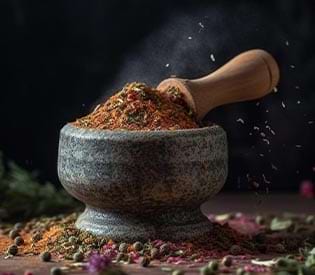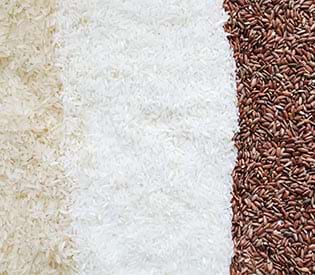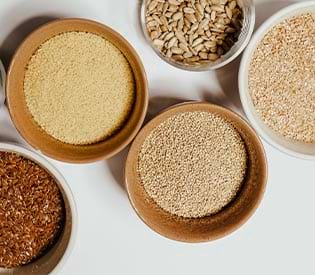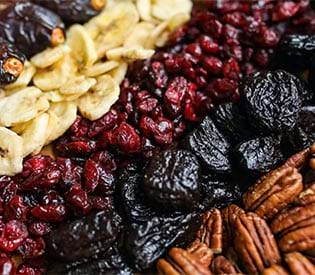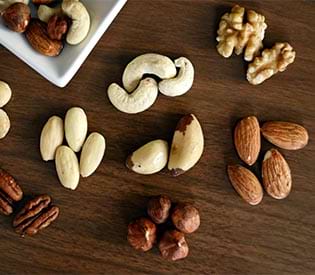Lemon Balm
📦🚚 Fast & Free shipping on all orders
What is lemon balm?
Melissa officinalis, a member of the Lamiaceae family, possesses heart-shaped, serrated leaves and emits a citrus fragrance. People have used lemon balm for centuries because of its beneficial properties, and they highly value its profound emotional and spiritual effects. Melissa has historically been employed as a mild nervine and to promote skin health in bathing. It can be prepared into a citrusy lemon balm tea, incorporated into other herbal tea mixtures, and incorporated into body care recipes; it is frequently used to induce a state of tranquility.
Lemon balm has been utilized since antiquity to soothe the body and heart, and its delicate lemon flavor elevates the spirit of any dish to which it is added. It has been utilized to impart sweetness to jams and preserves, garnish salads, and impart flavor to various fish and poultry dishes, as well as liqueurs. Furniture varnish, cosmetics, and perfumes also utilize lemon balm. Tea containing it in combination with other calming botanicals like valerian, essential oil, and ointments intended for topical use are common preparations.
Lemon balm is an aromatic perennial hailing from different parts of North Africa, Asia, and Europe. It is characterized by its heart-shaped, serrated leaves and clusters of tiny flowers that are blue, yellow, or white in color. Numerous members of the Lamiaceae family share this trait. It is extensively cultivated and naturalized in temperate regions across the globe.
The application of lemon balm dates back several millennia to the Romans and Greeks. Initially, the Romans and Greeks documented its use as a wine-infused liniment. Dioscorides, a physician, pharmacologist, and botanist from ancient Rome who authored the herbal De Materia Medica, describes its application in this manner. Similarly, Ayurvedic medicine utilized it in the same fashion. Herbalist and nun St. Hildegard of Bingen, who was born in present-day Germany in 1098 C.E., once said, "Lemon balm possesses the beneficial properties of a dozen other plants." Nicholas Culpepper, an eminent herbalist, physician, botanist, and ardent astrologer who authored the Complete Herbal in 1653, stated that desiccated lemon balm and honey could be combined to create a fine "electuary." According to his writing, because it was associated with the zodiac sign Cancer and was governed by the planet Jupiter, it impacted emotions and was therefore associated with the water element.
In the past, people used lemon balm to improve their spirits. As Culpepper noted, a number of its characteristics possessed a spiritual essence. In rituals, this herb was utilized to both mend shattered hearts and attract romantic love.
The Tibbname, an ancient Middle Eastern text that describes Azerbaijani folk medicine practices, states that taking a bath in lemon balm tea promotes healthy skin and cardiac function. It was customary to internally consume or apply lemon balm externally for its reputed calming properties. Melissa officinalis, along with its relative M. parviflora, has been employed in Traditional Chinese Medicine (TCM) for millennia to regulate temperament and soothe the stomach. TCM also regards it as an energetically calming and dehydrating substance. Herbalist Matthew Wood states that "Melissa will generally calm the majority of individuals." The Carmelite nuns, a Roman Catholic religious order from the Abbey of St. Just, created Carmelite water, also known as "eau des Carmes" in France, which was a distilled alcoholic digestive tonic. It contained lemon balm, lemon zest, nutmeg, and angelica root. It has been utilized in Europe for centuries to promote healthy digestion, and it remains available today.
The generic name Melissa originates from the Greek word for "honeybee," reflecting the bees' deep affection for this exquisitely fragrant plant. The attribution of the discovery of honey to the Melissai's group of goddesses was present in ancient mythology. It was thought that they occasionally underwent metamorphosis into bees; at one point, in particular, a colony of these nymph-bees was credited with directing pilgrims to the ancient city of Ephesus.
How do I use lemon balm?
Herbs combine with the flowers and foliage to create a distinctive, savory marmalade or vinegar. You can also incorporate them into luscious condiments, sauces, and relishes. Incorporate tender leaves into fruit punches and fruit or green salads. Lemon balm is frequently incorporated into the preparation of shortbread or sugar biscuits.
Lemon balm benefits:
Lemon balm and other botanicals may help treat dyspepsia. According to additional sources, lemon balm oil possesses significant antibacterial properties. One study demonstrated that lemon balm exhibited sufficient efficacy against Staphylococcus aureus and Listeria monocytogenes.
◉ Reducing Anxiety: As a tension reliever, lemon balm has the potential to alleviate feelings of anxiety and apprehension. Several studies have demonstrated that lemon balm extract can enhance concentration and mood. By reactivating brain circuits, compounds called terpenes found in lemon balm can help calm the agitation of people with severe dementia, according to one study.
◉ Treating insomnia: When combined with botanicals such as valerian, lemon balm has been shown to aid in sleep. Additionally, lemon balm tea can alleviate insomnia.
◉ It can help relieve stress. Lemon balm is purported to alleviate stress-related symptoms, promote relaxation, and elevate mood. Lemon balm supplementation mitigated the adverse emotional effects of laboratory-induced psychological stress, according to a study from 2004. The participants indicated a reduction in feelings of alertness and an increase in their sense of serenity after consuming lemon balm.
Notwithstanding its double-blind design and placebo control, the sample size of this investigation was a mere 18 individuals. Additional investigation is required to expand upon these findings.
Instructions: Twice daily, consume 300 milligrams (mg) of lemon balm capsules. During episodes of acute tension, administer a single 600 mg dose.
◉ It may boost cognitive function: The aforementioned 2014 study investigated the potential cognitive function-improving effects of lemon balm.
A series of cognitive tasks encompassing memory, mathematics, and concentration were administered to the participants. According to the outcomes of these computerized tasks, those who consumed lemon balm exhibited superior performance compared to those who did not.
While the participants did demonstrate an improvement in alertness and performance, fatigue remains a potential consequence that may develop gradually. Food ingestion may have influenced the absorption rate of lemon balm, potentially affecting its effectiveness. More research is required.
Instructions: Three times daily, consume 300 to 600 mg of lemon balm.
Where do I buy lemon balm?
Buy lemon balm from the health food store in the USA, Alive Herbals.
Lemon balm information (at a glance):
| Product Name | Lemon Balm. |
| Scientific Name | Melissa officinalis. |
| Country of Origin | It is native to Middle East and North Africa. |
| Ingredient | Lemon Balm |
| Taste & Aroma | Smell tart and sweet, like lemons, a delicious lemon flavor. |
| Shelf Life & Storage | Shelf Life is about 06 - 36 months. Store it in an airtight container in a cool, dry place and prevent sunlight exposure. |
| Precautions | We requested you, Before consuming spices, herbs, teas or any kind of natural products you consult an expert qualified healthcare practitioner or herbalist. |
| Note | This product information has not been appraised by the Food and Drug Administration (FDA). For educational purposes only. |


